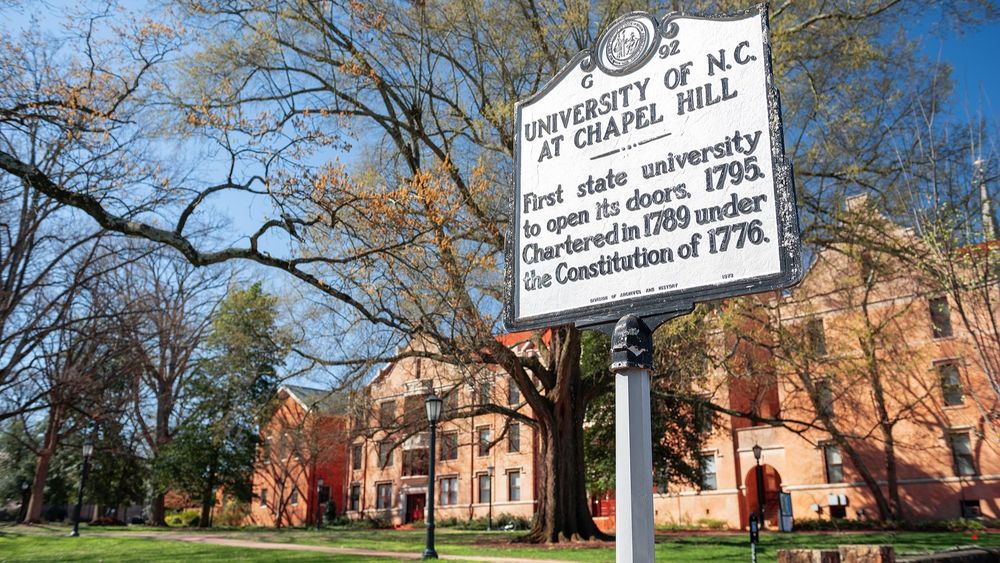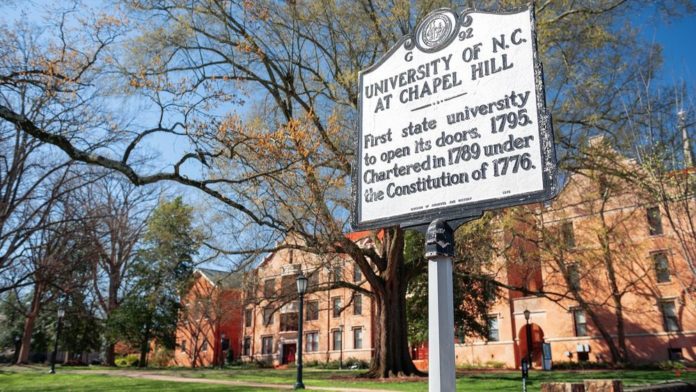
The University of North Carolina (UNC) at Chapel Hill recently hosted an online history exhibition titled “Queerolina” that covers LGBTQ history at and around the public university’s campus.
The exhibition’s main feature is an interactive map, which visitors can use to click on pins of locations on and around the UNC-Chapel Hill campus where LGBTQ students’ “Queer histories” took place.
In one audio clip, Larry Alford, a UNC alumnus, describes the basement of Wilson Library as a well-known meeting spot for gay men.
According to Alford, the basement had a “very large men’s room”, and “the activities that went on in that men’s room were actually pretty unsavory at times, frankly.”
[RELATED: ‘University’s ‘Out List’ connects students to queer teachers’]
Clayton Jackson, another member of the UNC community, discusses the Kitty Hawk Tavern in Raleigh, a popular meeting spot for LGBTQ students and others in the 1940s and 1950s.
Jackson described the Tavern as a place where “guys who want to pick up a trick” would go, and as “very secluded,” making it “a relatively safe place to cruise.”
“Picking up a trick” is slang for paying for sex, and “cruising” is slang for seeking anonymous gay sex.
Jackson went on to say that a hotel connected to the Tavern had a “notorious” tea room (a term for restrooms where anonymous sexual rendezvous take place) in the basement, adding that “it was one of the few tea rooms that had glory holes in the front of the stall.”
“[I]t was very easy for somebody to come in and see somebody in the stall with a hole, stand at a urinal…just turn around basically and stick your d*** through the hole”, Jackson explained.
Queerolina was spearheaded by the Carolina Pride Alum Network (CPAN), a UNC-Chapel Hill alumni group.
[RELATED: ‘Universities pay for LGBTQ+ inclusive ranking to make money as they raise tuition’]
CPAN launched ‘Queerolina’ as part of their “The Story of Us” project, with the goal of “[d]ocumenting and [p]reserving LGBTQIA Carolina History.”
CPAN raised $100,000 for the project.
The exhibition formally ran during the 2021-2022 academic year. The curators were graduate student Hooper Schultz, a “cisgender gay man from North Carolina,” and Cassie Tanks, a university alumna.
UNC-Chapel Hill and the Carolina Pride Alum Network have been contacted by Campus Reform for comment. This article will be updated accordingly.
Follow @realemilysturge on Twitter








